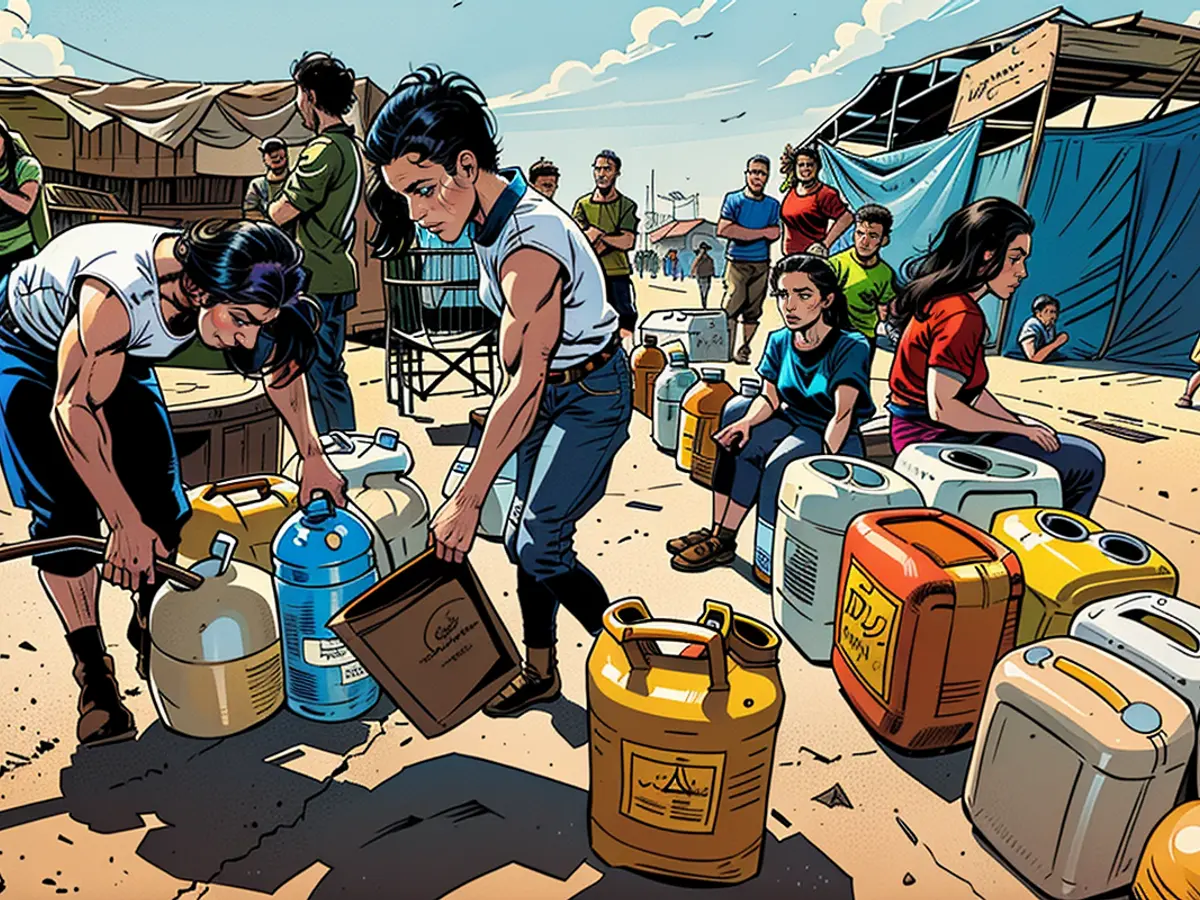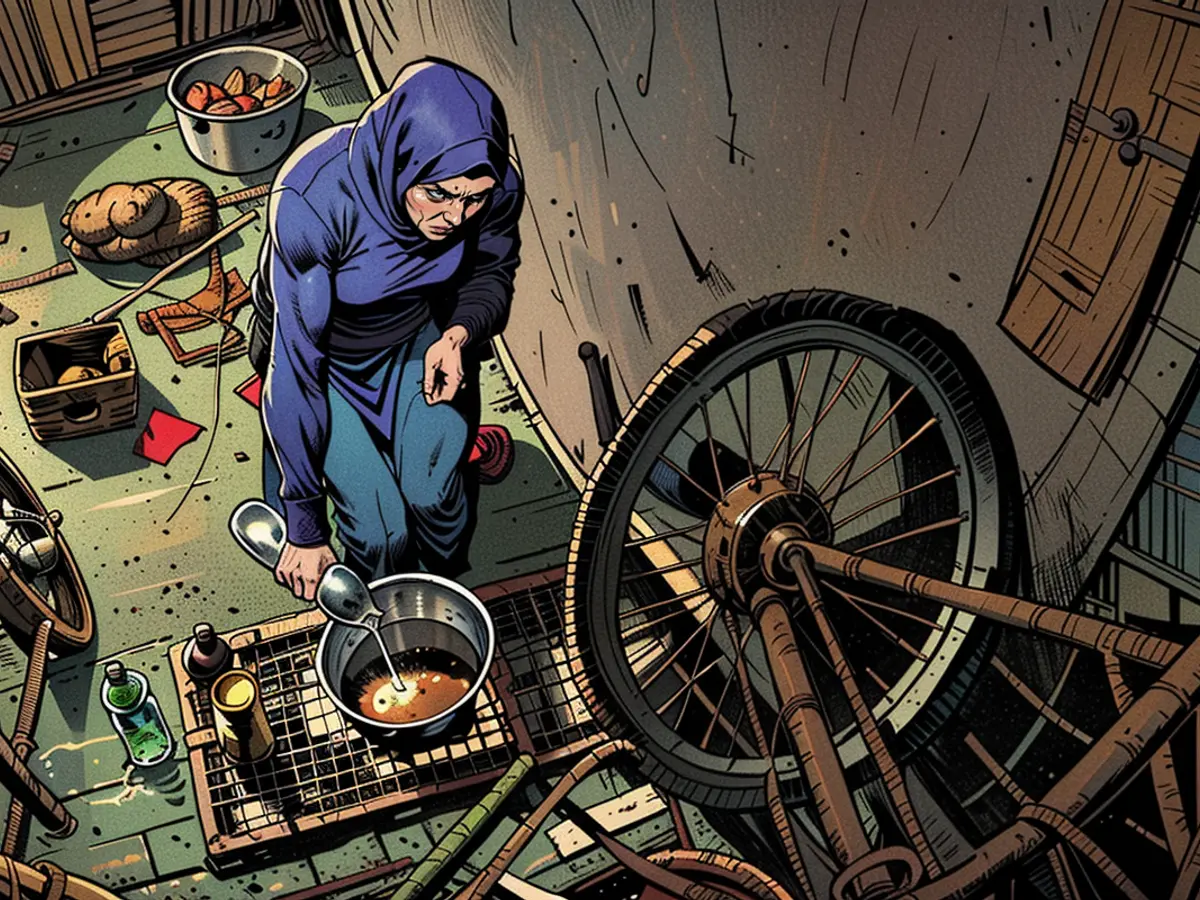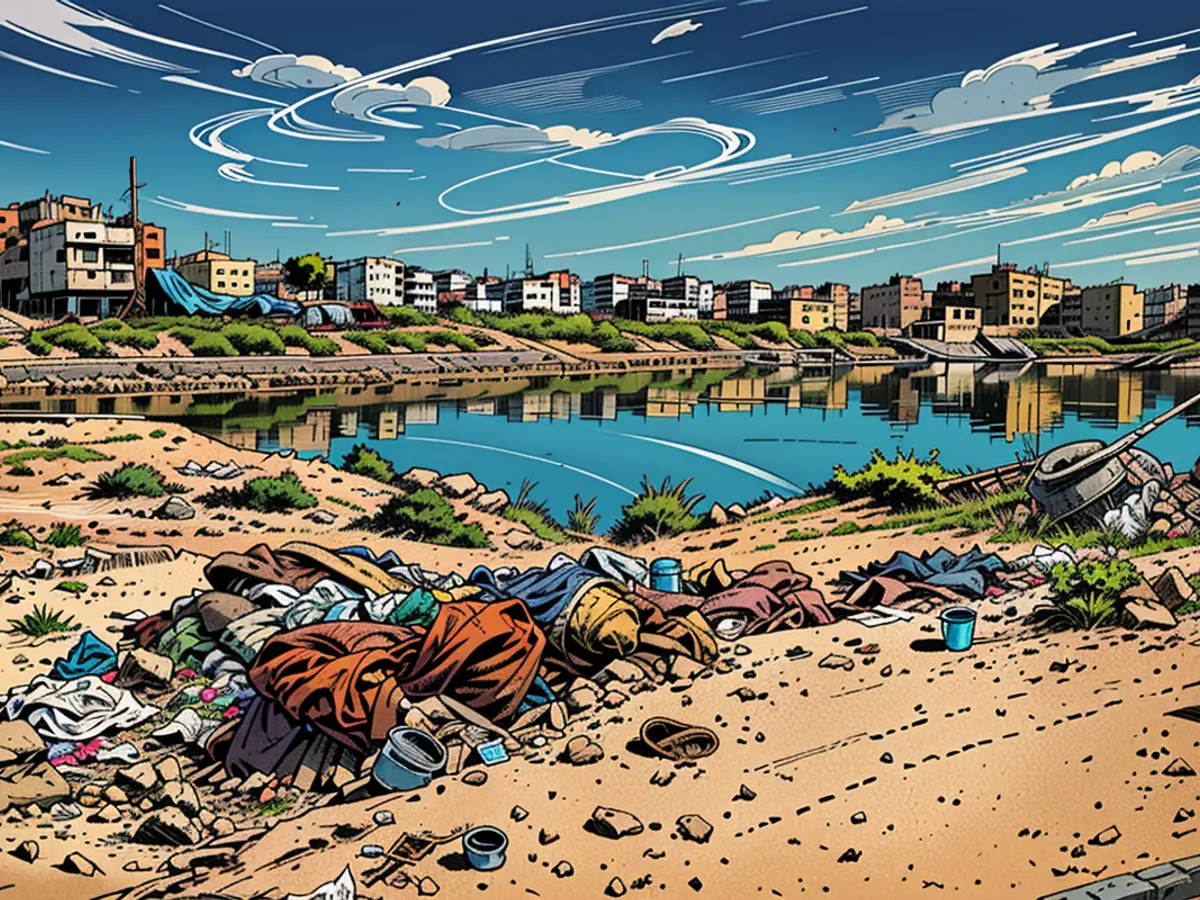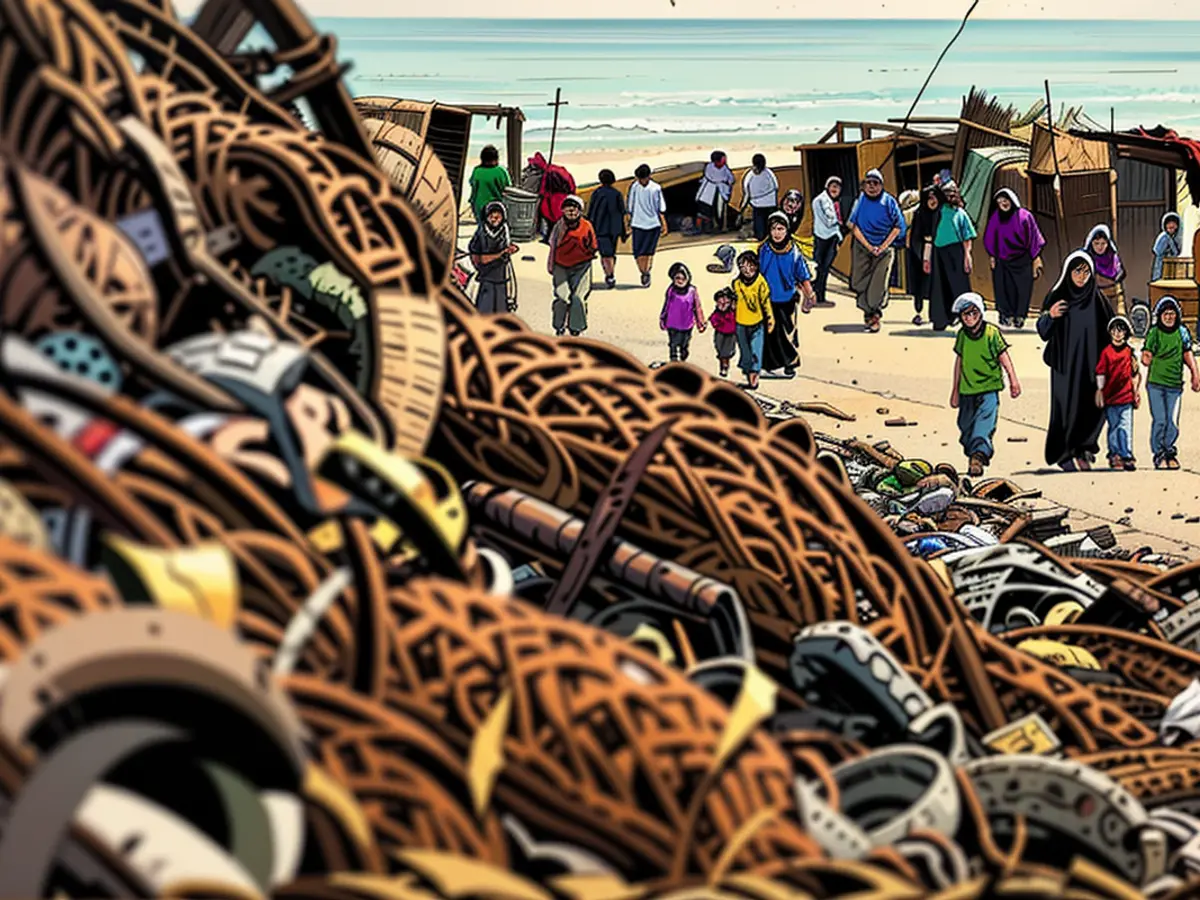Health catastrophe in Gaza escalates as flies, mosquitoes, untreated waste, and towering trash piles pose increasing risks.
Living in Gaza City's north, Ismail Zayda shared his struggles with CNN due to the water supplies being cut off for Nearly a Year.
"The municipalities aren't functioning, and piles of waste are stacked on our doorsteps and on the roads," he explained.
"For the first time, we're seeing enormous swarms of airborne bugs... frankly, there are insects we've never seen before, and they sting our bodies and our kids' bodies."
Israel's continuous bombardment of Gaza, which began following the October 7 attacks, has been ongoing for eight grueling months, resulting in a worsening humanitarian crisis.
Human rights groups have repeatedly raised alarms over the inhumane living conditions for Palestinians, as Israel's military campaign has leveled neighborhoods, crippled healthcare infrastructure, and depleted food, water, and fuel resources.
A resolution to the prolonged and bloody conflict seems distant. A US-supported ceasefire plan, backed by the United Nations Security Council (UNSC), was recently approved, but neither side has agreed to it. Israeli Prime Minister Benjamin Netanyahu continues to vow that he will press on until Hamas is eradicated and all remaining hostages are freed.
In a recent assessment, the UN Office for the Coordination of Humanitarian Affairs (OCHA), reported that in Deir al Balah, where thousands of displaced are seeking refuge, families have described shelters as overcrowded. They have reported various health issues, such as hepatitis A, skin diseases, and respiratory illnesses, and claimed that access to clean water is critically low.
At one displacement site, the average amount of water available per person per day was less than one liter, far below the internationally recognized minimum requirement for survival of three liters.
Clean water is crucial not just for drinking and cooking, but to prevent disease spread.

OCHA reported this week that more than two-thirds of water and sanitation facilities and infrastructure in Gaza have been destroyed or damaged due to the conflict. Many other facilities are out of service due to hurdles including "insecurity, access difficulties, and a lack of power and fuel to operate generators."
OCHA stated that people's coping mechanisms are being pushed to their limits, with the most vulnerable collecting water from unreliable sources in inadequate containers, while lacking basic hygiene items like soap.
The anticipated high temperatures in Gaza this week are expected to be in the low 30 degrees Celsius, with warmer weather likely to worsen the already critical sanitation situation.
Zayda shared his experience of an out-of-service pool in his neighborhood, now a breeding ground for insects.
"During the day, flies gather, and at night, mosquitoes take over... We burn garbage at night to get rid of the flying insects," Zayda said.
He added that he spends much of his day wearing a mask due to dirty vehicles using burned frying oil as an alternative fuel, making breathing difficult.
"The roads are filled with sewage flowing through the streets, waste, and rubble from the bombing," Zayda said.
The treatment of sewage amid infrastructure damage and a lack of fuel has become a persistent issue in Gaza.

Carl Skau, Deputy Executive Director of the World Food Programme, said after a recent tour of Gaza that a million people have been displaced from Rafah and are now trapped in a densely populated area along the beach in the scorching summer heat.
"We drove through rivers of sewage," he said.
According to OCHA, the delivery of some fuel supplies has helped reduce the level of accumulated wastewater in the Sheikh Radwan area in Gaza City, but "the lack of a consistent fuel flow creates a continued risk of sewage overflow into neighboring areas."
Assem Al-Nabih, media officer for the Gaza City Municipality, confirmed to CNN that there is now a sewage leak in various parts of the city and even into the sea.
"There's significant damage to the sewer lines and sewage pumps, leading to the leakage of sewage and wastewater across the city," he said, estimating that over 4 kilometers of water pipelines had been ruined.
OCHA, in evaluations published recently, reported that 67% of water and sanitation facilities and infrastructure in Gaza have been destroyed or damaged due to conflict.
Spontaneous repair attempts are being made, such as the Coastal Municipalities Water Utility, in collaboration with the International Committee of the Red Cross, repairing several wells in Khan Younis, Deir Al Balah, and Nuseirat.
However, the multitude of the task, without a ceasefire and with limited fuel, equipment, and a war in progress, is far beyond the capacity of local authorities in Gaza.

Read also:
The Middle East crisis in Gaza has drawn global attention, with the World Food Programme expressing concern about a million displaced individuals living in unfavorable conditions.
Despite the recent UNSC-approved ceasefire plan, the conflict between Israel and Palestinians continues to escalate, affecting World Health Organization's efforts to improve water and sanitation facilities in the region.







